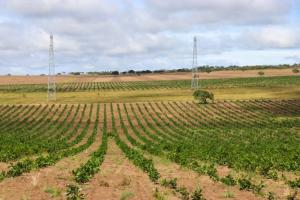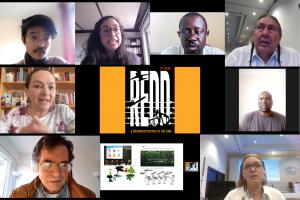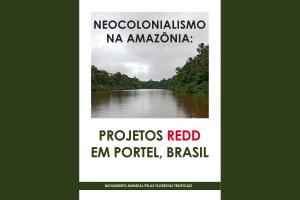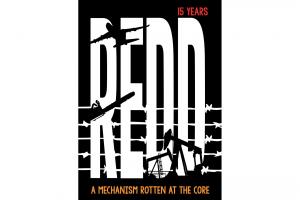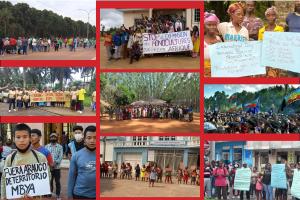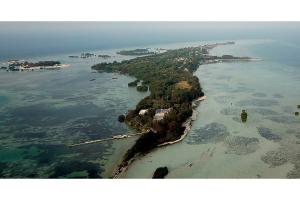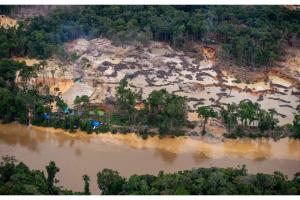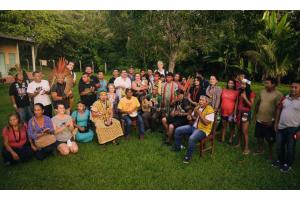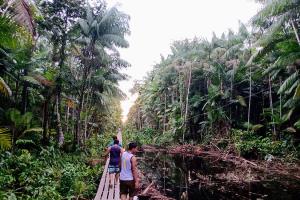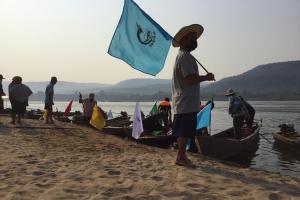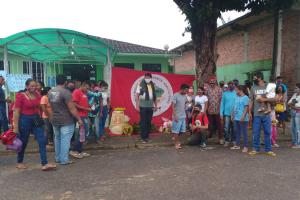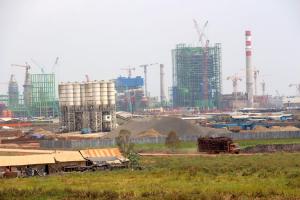An investigation by SourceMaterial and Unearthed exposed some of the impacts of a major tree-planting carbon offsetting project in the Republic of Congo from oil giant TotalEnergies, which was announced at the end of 2021.
The Green Economy
The Green Economy is a tactic used to “clean up” the image of corporations rather than address corporate capture and capitalism as the true drivers of deforestation. False solutions promoted under the Green Economy include certification, sustainable forest management, ecosystem services, REDD+, the bioeconomy, nature-based climate solutions, and zero net deforestation. Rather than stopping it, these “solutions” support corporate-driven destruction that is causing a deep social and ecological crisis.
Other information
16 January 2023
Multimedia
14 November 2022
Watch the conversation with the authors of the WRM publication “15 Years of REDD: A Mechanism Rotten at the Core”. The webinar was held on November 3, 2022.
Publications
9 November 2022
Amid the flurry of news about investments in carbon markets, a new WRM study has taken a closer look at a REDD initiative underway in the municipality of Portel, in the state of Pará in the Brazilian Amazon. The case illustrates what is known as "carbon colonialism".
Articles
17 October 2022
On 3 November, join a conversation to reflect on “15 Years of REDD: A Mechanism Rotten at the Core”.
Bulletin articles
11 October 2022
Industrial tree plantations have always been about corporate control over community fertile lands. The monoculture model inherently endangers communities’ survival, food sovereignty and autonomy, deepens the violence of patriarchy and racism while enforcing the same destructive and oppressive way of organizing land (and thus, people) as the one enforced during the colonial era.
Bulletin articles
12 September 2022
People in Pari Island are seeing their houses and business more frequently under water. Besides their struggles against corporate-led tourism, four Island’s residents are taking legal action against one of the major emitters of carbon dioxide in the world and hence a major responsible for their situation: the Holcim cement corporation.
Bulletin articles
12 September 2022
The discourse of the 'energy transition' is usually used to justify the expansion of the mineral extractive frontier. However, in addition to local pollution and impacts on forests and people, the extraction and processing of minerals require large quantities of water, with long-lasting and far-reaching effects on territories.
Declarations
22 June 2022
We, members of the Manchineri, Apurinã, Katukina Noke Kuí, Jamamadí, Jaminawa, Sharanawa, Huni Kuim, Shanenawa, Ashaninka, Madiha, Kuntanawa, Jaminawa-Arara, Jaminawa do Igarapé Preto, Marubo, Arara, Apolima-Arara, Kanoé Rondonia, Oro Wari Rondonia, Bororo, Nukini and Nawa peoples, farmers, extractive rural workers, and representatives of the organizations Indigenist Missionary Council (CIMI), World Rainforest Movement (WRM), Friends of the Earth Brazil, Sempre Viva Feminist Organization (SOF), World March of Women (WMW), Landless Rural Workers’ Movement (MST-RO) and Small Farmers’ Movement
Bulletin articles
16 June 2022
Fossil fuels are at the root of the climate chaos – but the conditions for this crisis have been created by the interconnections and dependencies between colonialism, racism, patriarchy and class exploitation. To address climate chaos, therefore, it is necessary to address the unequal relationships of power upon which a fossil-fuel dependent capitalism is based.
Bulletin articles
16 June 2022
The nearly 5,000 km. of the Mekong River, which crosses six countries and sustains the lives and livelihoods of millions, is under severe threat due to the on-going construction of large scale dams. Communities are resisting what could be the final struggle to save some of the remaining parts of the River… of their lives.
Bulletin articles
16 June 2022
In Brazil, oil palm plantations are expanding rapidly, mainly in the Amazonian state of Pará. BBF (Brasil BioFuels), the largest oil palm company in Brazil, stands accused of environmental crimes and violence against indigenous, quilombola and peasant communities such as Virgílio Serrão Sacramento, a community linked to the Small Farmers’ Movement (MPA).
Bulletin articles
16 June 2022
More than 10 million hectares in Indonesia are controlled by the pulp and paper industry, mainly by two giant corporations: APP and APRIL. Despite the companies’ commitments to protect forests and peatland, both keep being associated with deforestation, forest fires and to a business model of violence, criminalization and dispossession of forest communities. (Available in Bahasa Indonesia)
